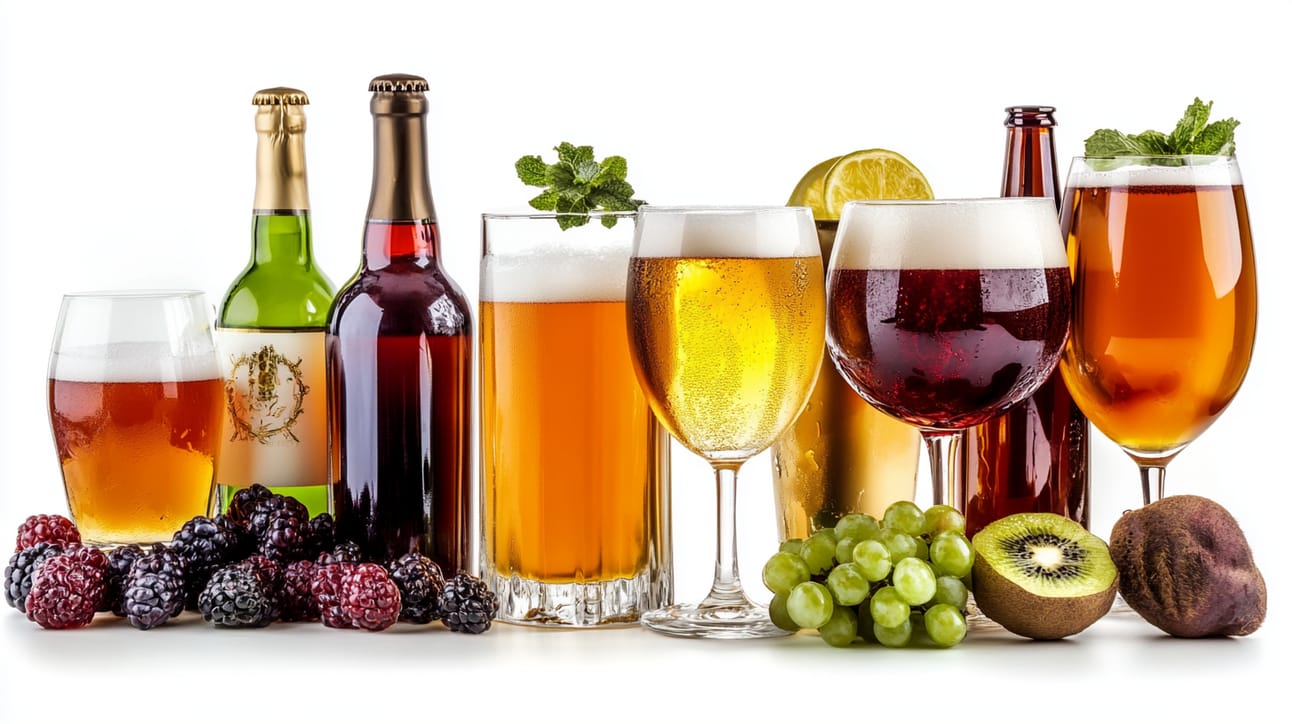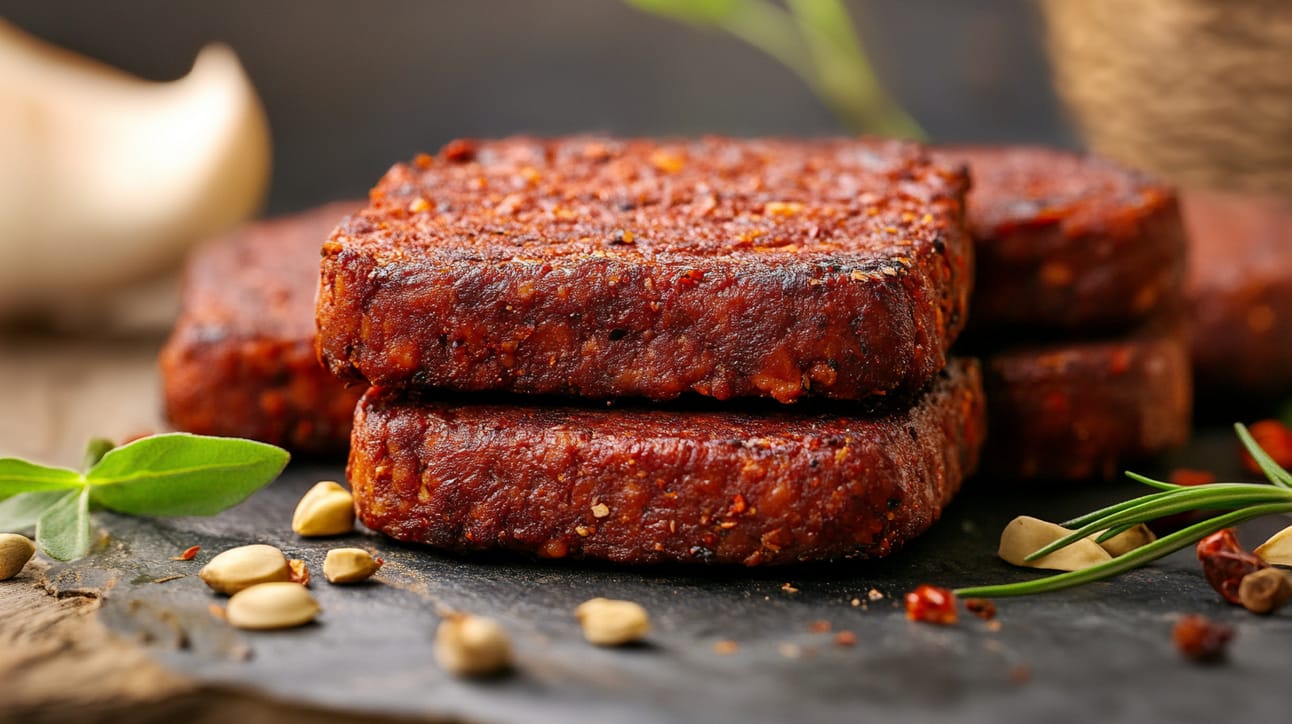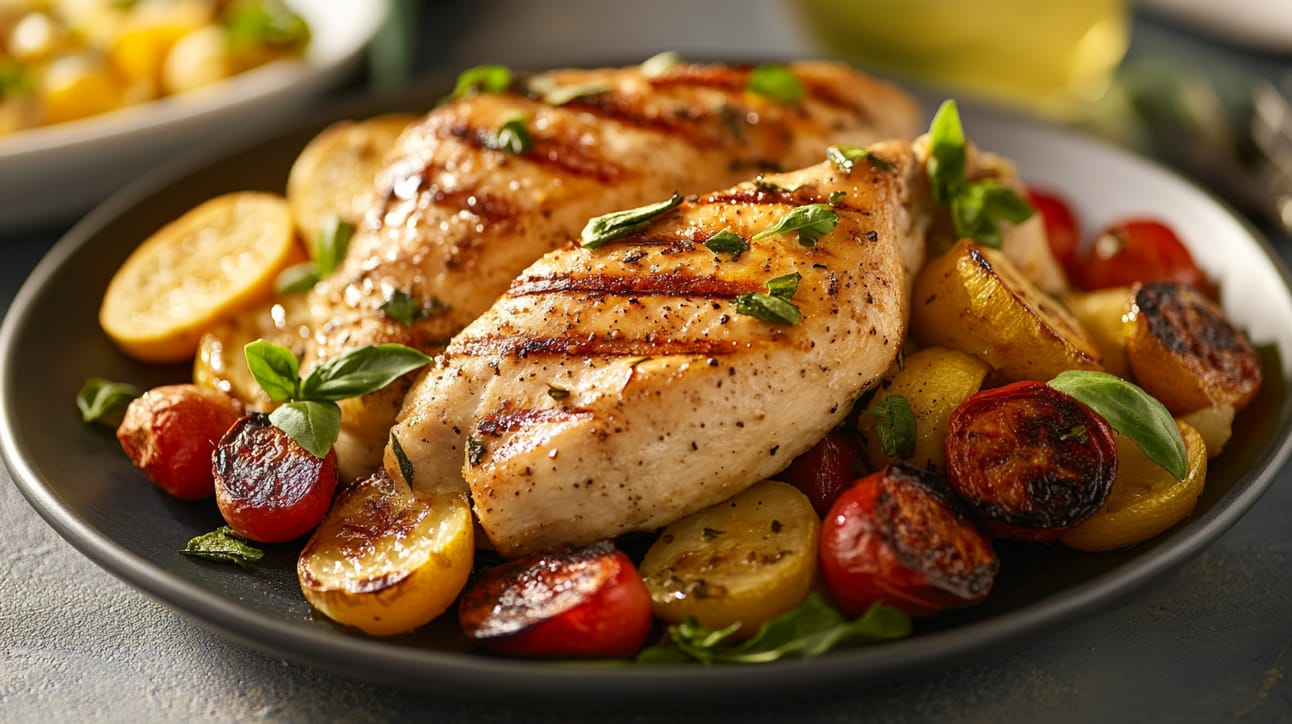- Vitazen Health
- Posts
- 🍷You Might Be Drinking Cancer
🍷You Might Be Drinking Cancer
Brought to you by Quick Thyme
Hey Thymekeepers!
Thank you all 708 of you!
Cancer prevention starts with awareness—and small, consistent choices.
Most of us know the big risk factors: smoking, poor diet, lack of exercise. But did you know that even a single drink a day can quietly increase your cancer risk?
Here’s the truth: alcohol isn’t just an indulgence—it’s a leading preventable cause of cancer. But don’t worry, I’m here to share actionable insights that can empower you to make healthier, informed decisions.
In this issue, we’ll explore the hidden dangers of alcohol, the latest on avoiding trendy vegan meats, and a recipe that’s as nourishing as it is delicious. Let’s dive in!
Read 🔽 below!
IN LESS THAN 10 MINUTES WE WILL COVER
Weekly Insights
The Untold Truth About Alcohol and Cancer Risk
Current Thyme Updates: Avoid Vegan Meat
Recipe of the Week: Lemony Chicken with Roasted Vegetables
Video of The Week

The Untold Truth About Alcohol and Cancer Risk
What if I told you that the glass of wine you think is “good for your heart” might also be quietly increasing your risk of cancer? This isn’t fear-mongering—it’s fact. And the U.S. Surgeon General’s latest advisory is a wake-up call for anyone who’s been lulled into thinking alcohol is harmless.
Here’s the deal: alcohol is the third leading preventable cause of cancer in the U.S., right behind smoking and obesity. Let that sink in. Each year, alcohol is linked to nearly 100,000 cancer cases and about 20,000 deaths. Yet, less than half of Americans even realize this connection. Why? Because the alcohol industry—and let’s be real, our own misconceptions—have kept this narrative buried.
The science isn’t new. The link between alcohol and cancer has been known since the late 1980s, but the evidence has only gotten stronger. Research shows alcohol consumption raises the risk for at least seven types of cancer: breast, colorectal, liver, esophagus, mouth, throat, and larynx. And here’s the kicker: even moderate drinking—yes, that innocent “one glass a day”—can tip the scales toward cancer risk.
The Hard Truth About ‘Safe’ Drinking
Many people assume that drinking within “recommended limits” (one drink per day for women, two for men) is safe. But even at these levels, the risk of certain cancers, like breast cancer, can begin to rise. For example, a woman’s lifetime risk of breast cancer increases from about 11.3% (less than one drink a week) to 13.1% with daily drinking. That’s not just numbers on paper; it’s real lives affected.
And the risks don’t stop there. Studies show that alcohol’s impact is cumulative—the more you drink over time, the higher your risk. Think of it like a ticking time bomb for your health, with each sip potentially edging you closer to a diagnosis.
The Science of Why Alcohol Is a Carcinogen
Here’s the nitty-gritty: alcohol breaks down into acetaldehyde, a toxic compound that damages DNA and prevents it from repairing itself. Damaged DNA is the first step toward cancer. Alcohol also generates reactive oxygen species (fancy talk for harmful molecules that inflame and attack your body). Add hormonal disruptions—like increased estrogen levels linked to breast cancer—and you’ve got a perfect storm.
To make matters worse, alcohol can act as a solvent, making it easier for other carcinogens (like those from smoking) to enter your body. So, if you’re a drinker and a smoker, your risk isn’t just doubled—it’s compounded.
Public Perception vs. Reality
Despite this overwhelming evidence, the public remains woefully uninformed. Only 45% of Americans recognize alcohol as a cancer risk factor, compared to 91% who know about tobacco and cancer. The Surgeon General’s advisory underscores an urgent need to close this knowledge gap.
But why hasn’t this message gained traction? Part of the problem is outdated health labels on alcoholic beverages. The warning labels we see today, mandated in 1988, only mention pregnancy and impaired driving—not cancer. Contrast this with countries like South Korea and Ireland, which have implemented cancer-specific warnings on alcohol.
What Can We Do?
The Surgeon General’s advisory lays out a clear action plan:
Update Alcohol Labels: Add clear, visible cancer warnings on all alcoholic beverages.
Rethink ‘Moderation’: Reassess drinking guidelines based on the latest evidence.
Education Is Key: Launch public awareness campaigns to educate people about the risks.
Empower Clinicians: Train healthcare providers to discuss alcohol-related cancer risks with patients.
Why This Matters to You
Here’s the bottom line: every sip of alcohol is a choice—and that choice carries weight. Awareness is your first defense. You don’t need to quit cold turkey, but understanding the risks empowers you to make informed decisions. Maybe it’s cutting back, swapping that second glass of wine for water, or rethinking your relationship with alcohol altogether.
The truth is staring us in the face, and it’s time to act. Alcohol isn’t just a casual indulgence—it’s a carcinogen. The Surgeon General’s advisory is a call to action, not just for policymakers but for each of us. So, the next time you raise a glass, ask yourself: is it worth the risk?
Start the new year feeling refreshed and energized.
Cornbread Hemp’s CBD Sleep Gummies are here to help you achieve your best sleep yet. Unlike other options, these gummies are USDA organic and melatonin-free. Instead of melatonin, which can leave you groggy, they’re crafted with hemp flower, lavender, chamomile, and valerian root—ingredients that gently calm your mind and promote uninterrupted, restorative sleep.
As a Vitazen Health reader, you’re in luck: use code RESOLUTION at checkout to enjoy 30% off your first order.*
*One-time purchases only, cannot be combined with subscription discounts.

Current Thyme Updates
Ultra-Processed Foods: 9 Items to Avoid
A recent article highlights the health risks associated with ultra-processed foods (UPFs), which are linked to obesity, cancer, diabetes, heart disease, and depression. Research involving nearly ten million people indicates that high UPF consumption increases disease risk and mortality rates. In the UK, UPFs constitute 57% of adults' daily energy intake, rising to 66% in adolescents. Specific foods to avoid include sweetened cereals, ready meals, processed meats, branded cakes, vegan meat substitutes, processed cheese, corn chips, flavored yogurts, and fizzy drinks. Reducing or eliminating these from one's diet in favor of natural, minimally processed alternatives is recommended for better health.
Top 10 Food & Nutrition Trends for 2025
EatingWell predicts the top food and nutrition trends for 2025, emphasizing the anti-inflammatory diet's sustained popularity due to cognitive health benefits. There's a growing interest in tea for its immune and hydration advantages. Tropical fruits like guava, mango, and pineapple are expected to gain popularity, along with dates as low-sugar substitutes. Nostalgic flavors such as honey mustard are making a comeback. High-protein ingredients, especially plant-based ones, will be emphasized for their health benefits. Canned foods are in demand for affordability and convenience. Cognitive health, particularly brain-boosting foods, will be a major focus. Calming mocktails featuring ingredients like kava and magnesium will appeal to those adopting a sober lifestyle.
Beans: The New Nutrition Obsession
Beans are gaining popularity in American diets due to their high nutritional value. Rich in protein, fiber, iron, potassium, and folate, and low in fat, beans help lower blood pressure and cholesterol, improve gut health, and reduce risks of cardiovascular disease, obesity, and colon cancer. Nutritionists praise beans as a "nutrient powerhouse." Social media trends and cultural events have further boosted their popularity. Research indicates that beans enhance gut microbiome diversity and reduce harmful bacteria. Scientists recommend increased bean consumption in dietary guidelines. Dietitians suggest incorporating beans into meals gradually to avoid digestive discomfort.
Recipe of the Week
Lemony Chicken with Roasted Vegetables (4 Servings)
This Lemony Chicken with Roasted Vegetables is a vibrant and healthy Italian-inspired dish. Featuring juicy chicken and a medley of roasted vegetables, this recipe is packed with flavor and easy to prepare. The bright lemon sauce adds a refreshing touch, making this a delicious and satisfying meal for any occasion.

Ingredients
4 boneless, skinless chicken breasts
1 tablespoon olive oil
1 onion, chopped
2 cloves garlic, minced
1 lemon, juiced
1/4 cup chicken broth
1/4 cup chopped fresh parsley
1/2 teaspoon dried oregano
1/4 teaspoon salt
1/8 teaspoon black pepper
1 pound assorted vegetables (such as broccoli, carrots, Brussels sprouts, or potatoes), chopped
Instructions
Prep the chicken: Season chicken breasts with salt and pepper.
Roast vegetables: Toss vegetables with olive oil, salt, and pepper. Spread on a baking sheet and roast at 400°F (200°C) for 15-20 minutes, or until tender-crisp.
Cook chicken: While vegetables roast, heat olive oil in a large skillet over medium heat. Cook chicken breasts until browned on both sides, about 5-7 minutes per side.
Make the sauce: In a small bowl, whisk together lemon juice, chicken broth, parsley, and oregano.
Combine: Pour lemon sauce over chicken in the skillet. Reduce heat to low, cover, and simmer for 5-7 minutes, or until chicken is cooked through.
Serve: Serve chicken with roasted vegetables.
Tips
Adjust the vegetables: Use your favorite seasonal vegetables for this dish.
Add some spice: Add a pinch of red pepper flakes to the sauce for a bit of heat.
Serve over pasta: Serve the chicken and vegetables over whole-wheat pasta for a heartier meal.
Video of the Week
Uncover the surprising cancer-fighting properties hidden within tomatoes! Watch this video to learn about the powerful antioxidants in tomatoes and how they can help protect your body from disease. Discover the science behind this incredible fruit and learn how to incorporate more tomatoes into your diet for a healthier you
Thank You For Reading!
Someone send you this email? Sign up here & get a FREE 28-day meal plan
Checkout our YouTube channel for more info on how your diet can improve your health
What did you think of today's email? |


Reply